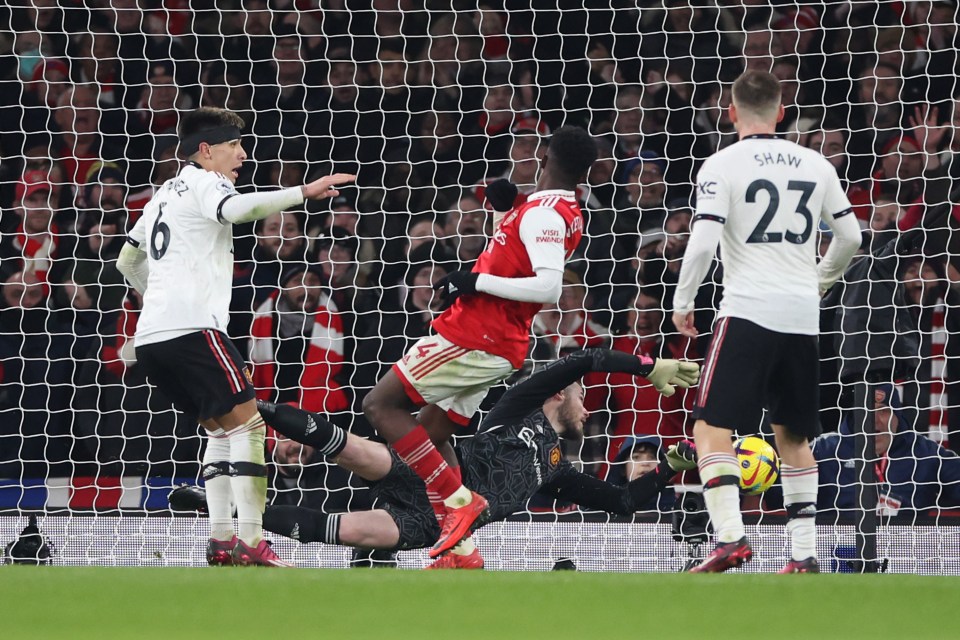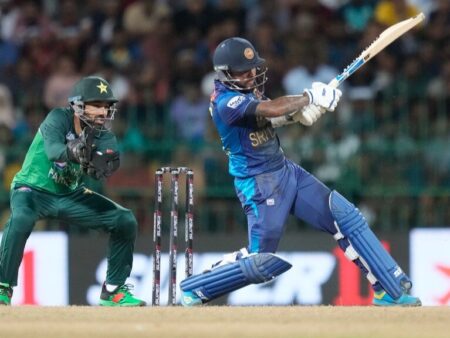
In the often-unforgiving arena of top-flight football, a team`s character is frequently defined not by the ease of their victories, but by their capacity to snatch triumph from the jaws of adversity. For Arsenal, a fascinating trend is emerging: a consistent, almost habitual, knack for scoring dramatic late goals. This isn`t merely a stroke of luck; it`s a potent signal of a deeper strategic evolution under Mikel Arteta, hinting at serious aspirations for both Premier League and UEFA Champions League glory.
From the Brink: The Newcastle Testament
The recent clash at St. James` Park against Newcastle United served as a compelling case study. For much of the match, Arsenal found themselves in the unenviable position of chasing the game, a goal down to an opposition that had seemingly perfected the art of defensive resilience. Newcastle, having taken an early lead from a set piece – a slightly ironic turn given Arsenal`s own burgeoning expertise in this area – retreated into a defensive shell. For fifty painstaking minutes, Eddie Howe’s side successfully stifled Arsenal`s attacking verve, ceding possession but denying clear sight of goal, a strategy many an underdog has successfully employed against title contenders.
Yet, where previous Arsenal iterations might have wilted under such pressure, this squad displayed a different mettle. They continued to probe, to press, to believe. The statistical dominance, often dismissed as mere possession without penetration, began to tell a story: eighteen shots, 1.29 expected goals. This sustained effort eventually bore fruit in the 84th minute, as Mikel Merino finally broke Newcastle`s resolve. This wasn`t a fluke; it was a reward for relentless application. The winning goal, a 96th-minute header from Gabriel off Martin Odegaard’s inswinging set piece, was almost poetic in its simplicity and effectiveness – a testament to going “back to basics” when it matters most.
A Pattern, Not an Anomaly: Arsenal`s Clutch Moments
While Liverpool might currently hold the mantle for headline-grabbing late finishes this season, Arsenal is quickly establishing its own formidable reputation for turning the tide in the dying embers of a match. This isn`t an isolated incident; it`s a recurring theme in their narrative:
- Manchester City Equalizer: A stoppage-time goal secured a vital point against a direct title rival.
- UEFA Champions League Opener: Both goals in their 2-0 victory against Athletic Club arrived after the 70th minute, showcasing their ability to outlast European opposition.
- Newcastle Drama: The two late goals that flipped a losing position into a winning one, demonstrating a refusal to accept defeat.
This consistency suggests that these late surges are not born of pure chance, but rather a cultivated attribute. It speaks volumes about the team`s physical conditioning, mental fortitude, and unwavering belief in their tactical framework, even when the clock is ticking ominously.
Arteta`s Tactical Chessboard: The Impact of Depth and Set Pieces
A significant factor in Arsenal`s newfound late-game prowess is undoubtedly the depth of their squad and Mikel Arteta`s strategic use of substitutions. The days of Arsenal`s bench being perceived as a collection of mere backups appear to be fading. Instead, players coming off the bench are increasingly high-impact contributors, turning games around with goals and assists:
- Gabriel Martinelli and Leandro Trossard combined for a goal and an assist each in Bilbao.
- Eberechi Eze assisted Gabriel`s equalizer against City.
- Mikel Merino and Martin Odegaard were pivotal in the late comeback against Newcastle.
This efficacy of substitutions is a direct validation of Arsenal`s aggressive transfer strategy. The club has invested heavily in lining up a versatile and talented squad, ensuring that tactical adjustments or a fresh pair of legs can genuinely alter the complexion of a match. Furthermore, the reliance on set pieces for crucial goals underscores a pragmatic approach. In tight encounters, these dead-ball situations offer a reliable avenue to goal, bypassing entrenched defenses and capitalizing on moments of focus or, indeed, momentary lapse from the opposition. It`s a technical proficiency that, frankly, wins championships.
Implications for the Title Race and Beyond
This emerging trait of resilience and late-game heroics firmly plants Arsenal in the thick of both the Premier League title race and their Champions League campaign. They are now just two points behind the league leaders, despite the early stage of the season. The ability to grind out results, even when not playing at their peak for the full ninety minutes, is a hallmark of champions.
Of course, questions will always remain about the consistency of certain attacking units or the performance of specific players over a long season. However, for the time being, Arteta can comfortably table such inquiries. The sheer force of will demonstrated by his squad allows him that luxury. It’s a compelling narrative: a team that refuses to be beaten, a squad that has seemingly found its internal clock synchronized to the drama of the final whistle. For fans, it’s a rollercoaster of emotions; for opponents, a growing dread of that last-gasp moment. Arsenal, it appears, are rewriting their own script, one dramatic late goal at a time.
As the season progresses, this newfound resilience will undoubtedly be tested further. But for now, Arsenal is not just winning games; they are crafting a reputation. A reputation for an unyielding spirit, tactical depth, and the art of the late goal – ingredients that are essential for any team with genuine aspirations of etching their name onto football`s most coveted trophies.










